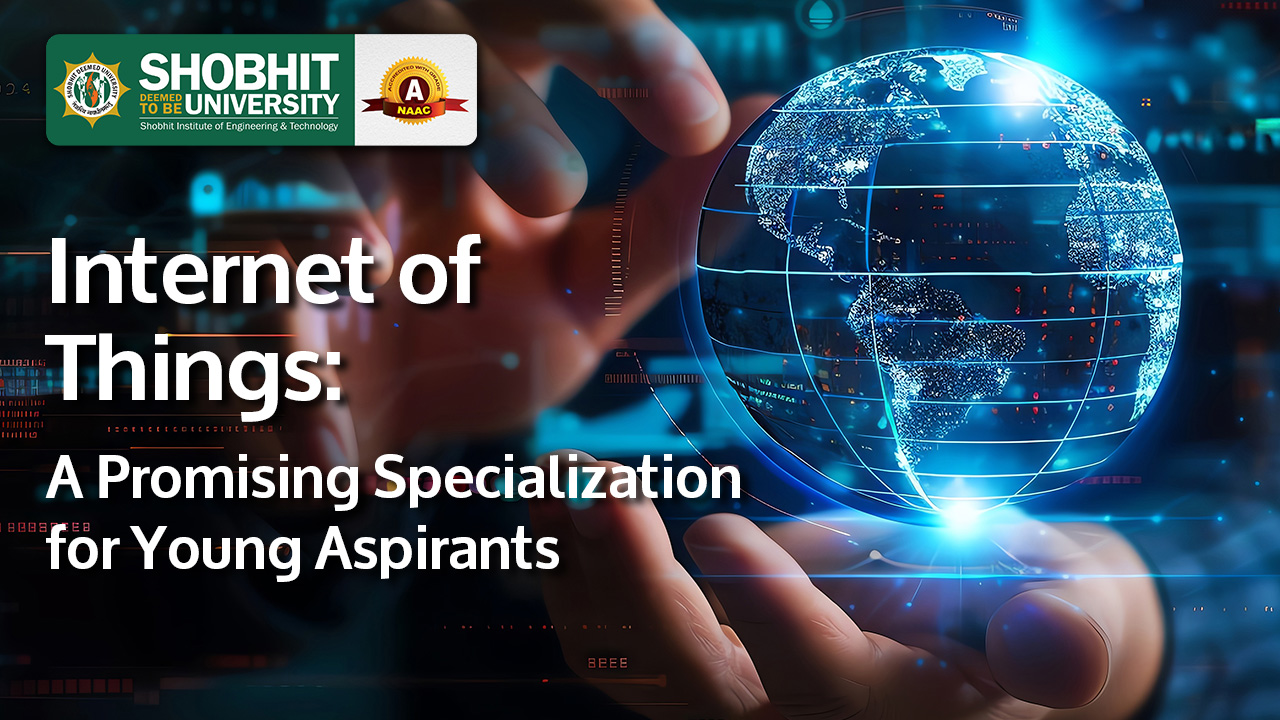
Internet of Things: A Promising Specialization for young aspirants
As the digital revolution continues to evolve, the Internet of Things (IoT) has emerged as an efficient technology that bridge the gap between technology and the physical world. It finds its relevance from smart homes and wearable health monitors to automated industries and intelligent transport systems. IoT is reshaping everyday experiences and industrial operations alike. It represents a dynamic and forward-looking specialization that blends software development with real-world applications, offering both intellectual stimulation and strong career prospects to students.
What is IoT and Why It Matters
IoT refers to the interconnected network of physical devices embedded with sensors, software, and communication technologies that enable them to collect and exchange data. These systems operate independently, analyze real-time inputs, and trigger responses without human intervention. The increasing demand of automation in businesses and industries demands real-time monitoring, and data-driven decision-making. IoT has become integral to innovation across sectors such as healthcare, agriculture, manufacturing, transportation, and urban planning.
The Scope of IoT Across Industries
Specializing in IoT opens new dimension for young aspirants by providing them opportunity to engage with a multidisciplinary field that integrates programming, networking, embedded systems, cloud computing, cybersecurity, and data analytics. This not only enriches the learning experience but also prepares students for roles that demand both technical depth and adaptability. In contrast to traditional software development, IoT development requires a holistic understanding of hardware-software interaction, data flow, and system integration skills that are highly valued in today’s job market. Moreover, the rise of complementary technologies such as Artificial Intelligence (AI), Machine Learning (ML), Blockchain, and Edge Computing has amplified the scope of IoT applications. Intelligent systems powered by AIoT (Artificial Intelligence of Things) are now capable of predictive maintenance,
autonomous decision-making, and adaptive user interactions. As such, students trained in IoT also gain exposure to these emerging fields, making them versatile and competitive professionals.
Why Specialize in IoT?
To prepare for a successful career in IoT, young aspirants are encouraged to develop skills in languages like Python and C/C++, familiarize themselves with hardware platforms such as Arduino and Raspberry Pi, and gain experience with cloud platforms like AWS or Azure. Practical knowledge through mini-projects, internships, and online certifications can also enhance readiness for the industry. IoT specialization opens doors to a variety of roles, including IoT developer, embedded systems engineer, data analyst, IoT solutions architect, and cybersecurity specialist. The demand for such professionals is expected to grow significantly, with organizations seeking individuals who can not only develop robust
IoT solutions but also ensure their scalability, security, and efficiency. Government and private sector initiatives promoting digital infrastructure and smart technology adoption are further contributing to the growth of IoT careers.
A Future-Ready Specialization
IoT is not just a technological trend but a paradigm shift that is redefining day to day and work life. Young aspirant with a passion for innovation, problem-solving, and future-ready skills, IoT stands out as a promising and rewarding specialization. Embracing this path can open up a wide array of opportunities in both current and emerging domains, paving the way for a meaningful and impactful career in the digital age.
